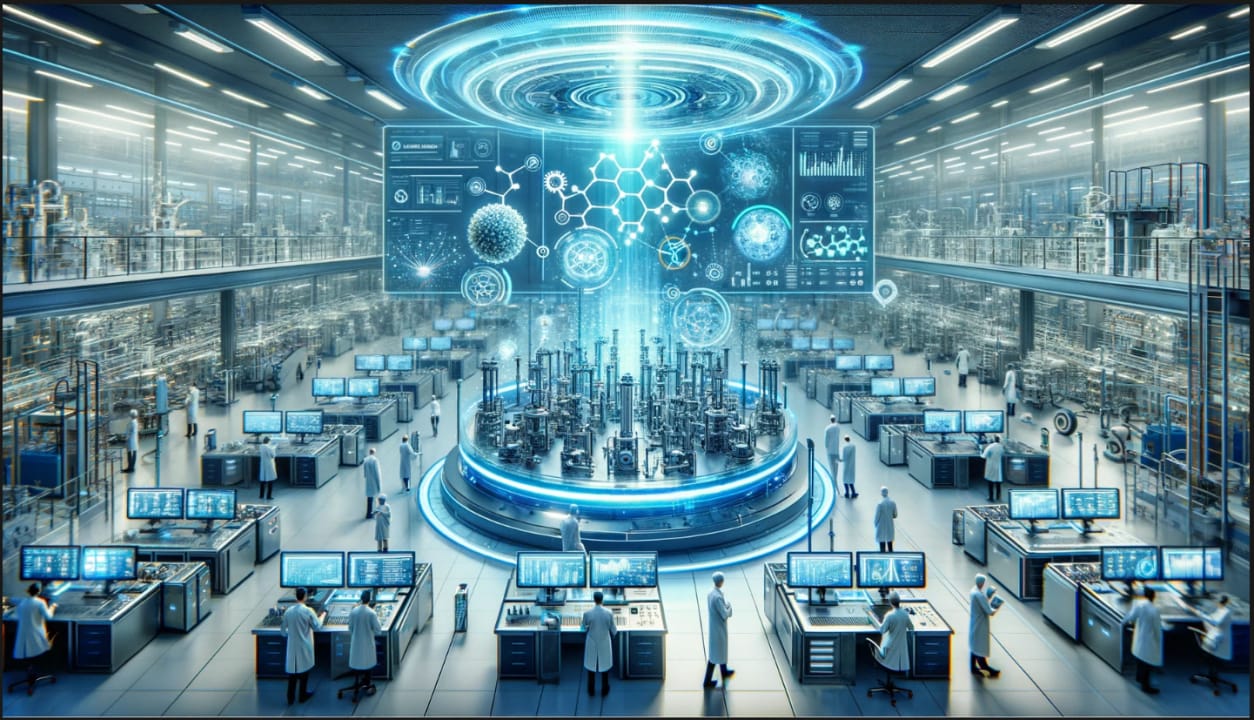#002: Unlocking Efficiency and Innovation: The Imperative of AI/ML in Pharma Manufacturing
Executive Summary
In an era where innovation is not just held aloft but expected, the pharmaceutical, biotech, and medical devices manufacturing industries stand at a crossroads. This whitepaper goes deeper into the AI and ML technologies based on immense experience of over three decades of its CEO, Nagesh Nama. This underlines an acute need for the top leadership in life sciences to undertake AI integration: it is not just a technological upgrade of activity but a strategic imperative that allows them operational excellence to gain competitive advantage.
In an environment increasingly defined by the pressures of regulation and market demands, the use of AI in manufacturing processes is actually not an option.
The AI Opportunity in Life Sciences
Visionary Leadership vs. Operational Stagnation
Key to applying AI in life sciences is moving from traditional operational mindsets to visionary leadership.
"The future belongs to those who see the possibilities before they become obvious." —John Sculley, Former CEO, Apple Inc.
Nowhere is such an outlook more vital than in the pharma manufacturing area, wherein the potential offered by AI/ML to turn everything from predictive maintenance to quality control processes goes largely untapped due to lack of proactive leadership.
Strategic Data Utilization: The Bedrock of Innovation
"Data is the new oil." -- Clive Humby, a British mathematician
That could be absolutely true with respect to the realms of pharma manufacturing. It is rightly said that FDA rules, through their stringent regulations, bring abundant and structured data that make this industry ripe for AI-driven innovation.
This strategic commitment is extremely necessary for the transformation from a data-rich to an intelligence-driven operation. McKinsey estimates that the companies adopting ML & AI that could double cash flow in 5-7 years, with manufacturing leading the line since it shows the highest reliance on data.
Case Studies of AI in Action
Predictive Maintenance: The world-leading biotech company applied ML algorithms to predict potential failures of its equipment. Doing so resulted in downtime and maintenance cost being reduced by 40% and 30%, respectively.
Improved Quality Control: An international pharmaceutical company was reported to increase its defect detection rate by more than 90% for its products using the AI-boosted visual inspection system, says Forbes.
Expected Benefits and Results
AI for Greater Operational Efficiency
In a way, AI in manufacturing is not so much the advent of new technology but rather a turning point in operational paradigms. Improved big data analytics capability of AI assures output with better optimized throughput, less waste, and a much higher quality of output.
For instance, using AI, GE Healthcare was able to reduce expenditure reflective of over $200,000 worth of savings every year for one system, with a 99% reduction in system calibration time.
Quality Assurance Reinvented
The impact that AI brings to quality assurance is profound. Machine learning-based automated systems outstrip traditional manual inspection processes at an easily demonstrable rate of both speed and accuracy. This ensures that not only is the work at par with the very best but also relieves valuable human resources to be deployed on more strategic work.
Call to Action
Pharma manufacturing integrating AI/ML technologies is an imperative that senior leadership must champion. Strategic thinking has an impact on their operational efficiency, product quality, and competitive markets most importantly. In the words of Nagesh Nama, "The window for this transformation is now. Waiting is not an option."
The road ahead really does not lie in just the adoption of new technologies but also inculcating a culture of innovation, where data-driven decisions and continuous improvement are the ethos. This whitepaper is intended for life science leaders at the senior level and makes a call to action—an unambiguous call to act in a very decisive manner—in harnessing the power of AI and ML to usher in a future that is more efficient, innovative, and resilient.
What questions do you have about artificial intelligence in Life sciences? No question is too big or too small.
/


